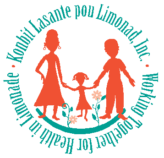How You Can Help
PLEASE CONSIDER DONATING TO KONBIT:
If you are interested in helping Konbit improve the health of people in Limonade, Haiti and the surrounding communities, we encourage you to make a tax exempt donation. Konbit is 100% volunteer driven. Except for the expenses for our post office box and for limited printed materials, all funds go directly to the four community health care workers (Ajan Sante) at the State Clinic, the items the Ajan Sante give out when they are working and teaching, and the “pop-up” rural medical clinics held as often as we can fund them.
U.S. dollars go a long way in Haiti. Consider that:
- $100 pays a Haitian nurse for 4 rural clinics.
- $120 pays a Haitian doctor for 4 rural clinics.
- $500 provides medications for 4 rural clinics.
- $625 provides 3 months of resources for the Ajan Sante to provide to families as needed (products such as soap, rehydration serums, bleach to purify water, acetaminophen, condoms).
- $2,900 provides the annual salary for a community health care worker.
Volunteer
The Konbit Board of Directors welcomes new members. If you are interested in making a real difference for those less fortunate come join us. We can use people with expertise in a variety of areas including medicine, social work, finance, graphic design, technology and social networking; however, just wanting to help improve the lives of others is expertise enough.
For more information email us at info@konbitlasante.org
Spread The Word
A member of the Konbit Board of Directors would be glad to give a presentation on Konbit Lasante pou Limonad, Inc. to your group or organization. For further information and to schedule a program email us at info@konbitlasante.org
Learn More – Suggested Reading & Viewing
To read:
Masterpieces of Haitian Art by Candice Russell
Avengers of the New World: The Story of the Haitian Revolution by Laurent Dubois
The Dew Breaker by Edwidge Danticat by Edwidge Danicat. Edwidge Danticat is perhaps Haiti’s best known author to Americans. This novel will give you a flavor of the political situation in Haiti from the 70s to the 90s.
Libete: A Haitian Anthopology by Arthur, Charles & Michael Dash, Ed. (non-fiction) – A comprehensive and accessible introduction to Haiti, whose present can onlt be interpreted through an understanding of history.
Infections and Inequalities: The Modern Plagues by Paul Farmer. A non-fiction analysis of the biologic and social realities of the chronic infectious diseases, based on Farmer’s training in infectious diseases, anthropology, and his background of working in Haiti and beyond. Profoundly moving case narratives from Haiti.
Reproducing Inequities: Poverty & Politics of Population in Haiti by Catherine M. Maternowski (non-fiction). This reading covers how the complex interplay of local and global politics affects the choices of women, particularly women in poverty; and how medical anthropologists might provide insight into failed policies, good intentioned or otherwise.
When the Hands Are Many: Community Organization & Social Change in Haiti by Jennie Marcelle Smith. A fascinating non-fiction narration of peasant organizations in a rural community as they engage in agricultural work parties, business meetings, religious ceremonies, social service projects, song sessions, etc.
To view:
Haiti: Harvest of Hope. (Kevin Pina)
Haiti: The Untold Story (Kevin Pina)
Aristide & the Endless Revolution. (Nicolas Rossier) The untold story of the 2004 coup and the systematic violence and human rights violations which followed under the interim government. Witnesses that this was not the first of last time for international interests made for the poverty and anguish of Haiti.
